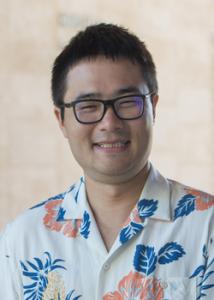UH researcher discovers susceptibility genes for pancreatic cancer
University of Hawaiʻi at MānoaSix novel susceptibility genes for pancreatic cancer risk have been identified by University of Hawaiʻi Cancer Center researcher Lang Wu. The study was published in Cancer Research by the American Association for Cancer Research.
“Our discovery of novel candidate susceptibility genes associated with pancreatic cancer will allow us to better understand the biology and genetics of this deadly malignancy, and help us to identify individuals at risk,” said Wu.
Pancreatic cancer represents one of the leading causes of cancer mortality in Hawaiʻi and in the U.S. overall, with a five-year survival rate of only nine percent. From 2012–2016, data shows that pancreatic cancer incidence is increasing in males in the state of Hawaiʻi.
To investigate susceptibility genes for pancreatic cancer, Wu and collaborators developed comprehensive genetic models to predict gene expression levels across the human genome in normal pancreas tissue. Through using these models, along with data from 8,275 individuals diagnosed with pancreatic cancer, and 6,723 individuals who have not been diagnosed with pancreatic cancer, the researchers found a total of 13 candidate susceptibility genes.
Seven of the 13 genes found were previously reported, confirming their associations with pancreatic cancer risk. The other six candidate susceptibility genes that were identified had not been previously reported to be associated with risk of pancreatic cancer.
Wu and his colleagues are now conducting studies to incorporate the newly identified genes along with other genetic and non-genetic factors into new risk prediction models for pancreatic cancer. Findings from these studies will help researchers to implement risk assessment strategies to improve pancreatic cancer outcomes.
“To reduce the disease burden, research is needed to better understand which factors cause it, which is currently largely unknown,” said Wu.
University of Hawaiʻi Cancer Center
The University of Hawaiʻi Cancer Center through its various activities, including scientific research and clinical trials, adds more than $54 million to the Oʻahu economy. It is one of only 71 research institutions designated by the National Cancer Institute. Affiliated with the University of Hawaiʻi at Mānoa, the Cancer Center is dedicated to eliminating cancer through research, education, patient care and community outreach with an emphasis on the unique ethnic, cultural, and environmental characteristics of Hawaiʻi and the Pacific. Learn more at uhcancercenter.org. Like us on Facebook at facebook.com/UHCancerCenter. Follow us on Twitter@UHCancerCenter.


